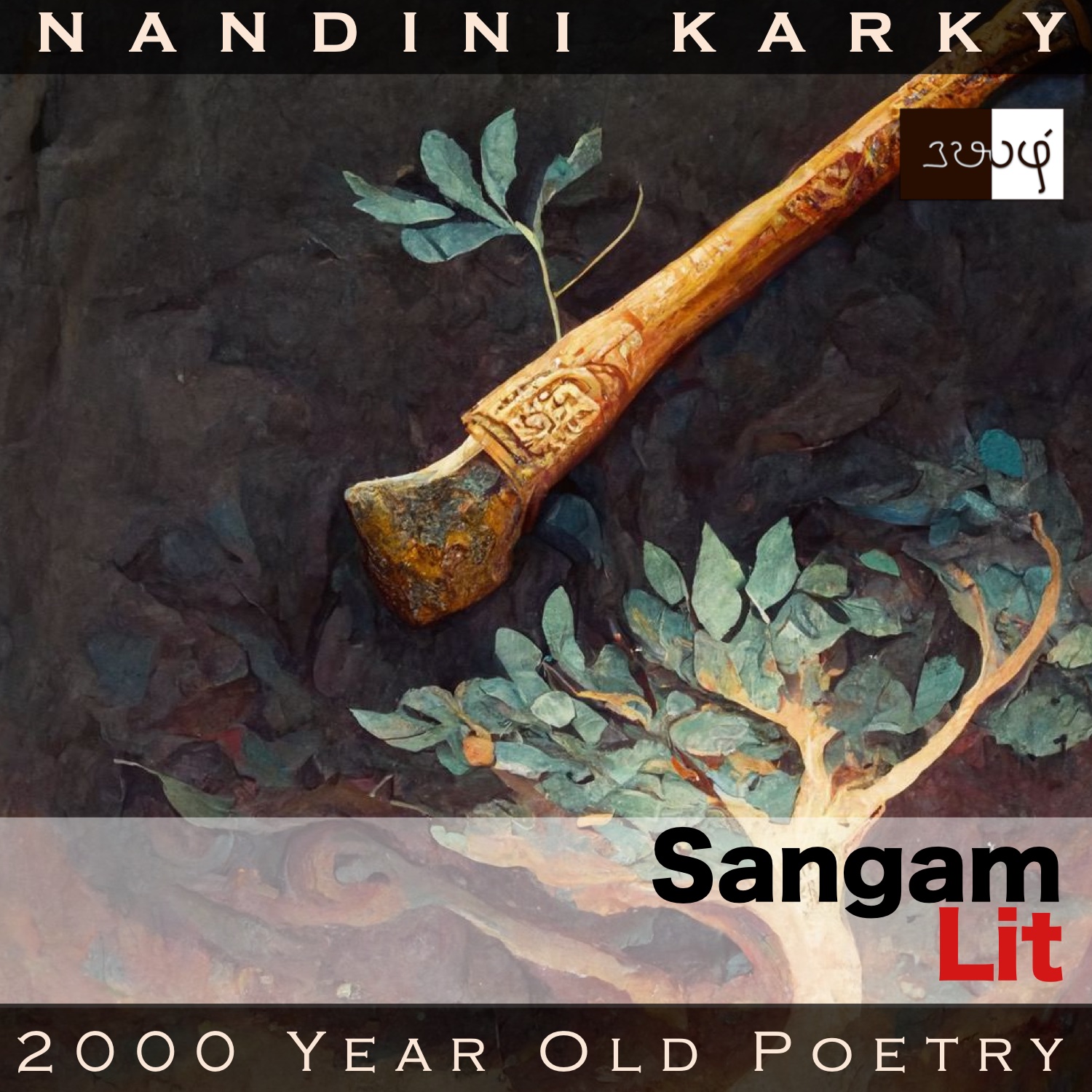Podcast: Play in new window | Download
Subscribe: Apple Podcasts | Spotify | Amazon Music | Android | iHeartRadio | TuneIn | RSS | More

In this episode, we listen to an argument for defending honour in the battlefield, as depicted in Sangam Literary work, Puranaanooru 36, penned about the Chozha king Kulamutrathu Thunjiya Killivalavan by the poet Aalathoor Kizhaar. The verse is set in the category of ‘Vanji Thinai’ or ‘king’s prowess in the battlefield’ and renders a pointed message about an enemy ruler to the Chozha king.
அடுநை ஆயினும், விடுநை ஆயினும்,
நீ அளந்து அறிதி, நின் புரைமை வார் கோல்,
செறி அரிச் சிலம்பின், குறுந் தொடி மகளிர்
பொலம் செய் கழங்கின் தெற்றி ஆடும்
தண் ஆன்பொருநை வெண் மணல் சிதைய,
கருங் கைக் கொல்லன் அரம் செய் அவ் வாய்
நெடுங் கை நவியம் பாய்தலின், நிலை அழிந்து,
வீ கமழ் நெடுஞ் சினை புலம்ப, காவுதொறும்
கடி மரம் தடியும் ஓசை தன் ஊர்
நெடு மதில் வரைப்பின் கடி மனை இயம்ப,
ஆங்கு இனிது இருந்த வேந்தனொடு, ஈங்கு, நின்
சிலைத் தார் முரசம் கறங்க,
மலைத்தனை என்பது நாணுத் தகவு உடைத்தே.
What’s interesting in this Puranaanooru song is the context wherein this song is rendered unto the Chozha king Killivalavan by this poet! This happens to be when the Chozha king has laid siege to the fort of the Chera ruler at Karuvoor. The poet’s words can be translated as follows:
“Whether you kill or whether you let go, you should analyse and decide based on what befits your honour; Young maiden, wearing small bangles and well-crafted anklets made from long rounded shells, play with seed-like objects made of gold on the white sands of the cool ‘Aanporunai river’. Ruining those sands, long-handed axes, sharpened by the saws of the black-handed smith, pounce and destroy the flower-fragrant long branches, making them lament. Even though the sound of protected trees being chopped in the sacred grove travels beyond the tall walls of the guarded fort in his town, the king seems to stay there in all pleasantness. And so, making your drums, which have garlands akin to rainbows, resound, if you were to wage war, that would be a shameful thing to do, indeed!”
Time of delve into the nuances of the message! The poet starts by curiously telling the king that whether the king is to ruin or release is not for the poet to say. Rather, it’s something the king must think and decide for himself. Questions arise as to whom and what this poet is talking about. Instead of answering these questions, the poet goes on to narrate the scene of young maiden, wearing bangles and anklets, playing on the white sands of the ‘Aan Porunai’ river with golden seeds. At this time, disturbing the smooth surface of those river sands, broken branches of trees fall. On investigating further, we learn these are from the trees in the protected forest of that town. Continuing, the poet points out how those branches are being felled by the well-crafted axes of the Chozha king’s army and he stresses that even though these harsh sounds are reaching beyond the fort walls of that town’s ruler, that same ruler seems to remain inside, without being roused to defend his land. And so, the poet concludes that if the Chozha king were to continue to attack such a king, with his proud drums resounding, then that would only be a thing of shame.
Now, we understand the initial words about the Chozha king reflecting on whether to kill or let go is about this Chera ruler, sweetly sitting in his fort as his land is being laid siege to. We can infer two facets about wars in Sangam times: One, the act of cutting down trees of an enemy king was considered an outrageous act, enough to provoke the ruler into rising up against the attacking king. Two, no matter the courage of a king, it was considered a shame to wage war on another king, if that ruler was not brave enough to stand up against him. It seems to be an implicit rule that a king shouldn’t spoil his name by choosing a lesser opponent. In another tangent, I’m reminded of a similar theme in many books and movies, wherein it’s more important to have a strong antagonist than even a protagonist. Think Harry Potter or the Marvel movies, what would those be without the power and strength of Voldemort or Thanos respectively? Interesting to note how much of creation seems to follow in the footsteps of this ancient poet’s instruction, ‘Take care in choosing your villain!’




Share your thoughts...